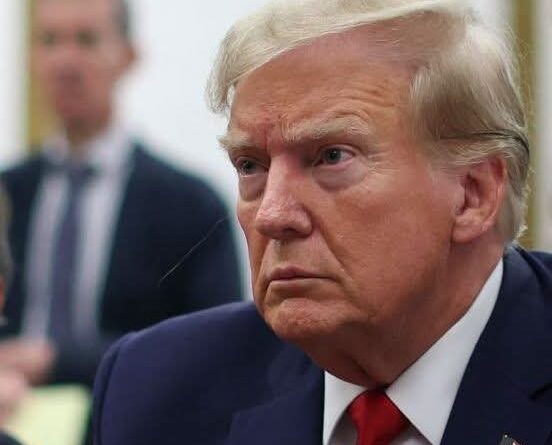US Supreme Court restrains president Trump from deporting migrants
In a late night decision on Saturday, the US Supreme Court issued an emergency order blocking President Donald Trump’s controversial plan to deport Venezuelan migrants under the centuries-old Alien Enemies Act.
The decision came just hours before dozens of Venezuelans were scheduled for removal, raising major constitutional questions.
Two of the Supreme Court’s most conservative justices dissented from the ruling, which temporarily stops the use of the 1798 law—previously employed during World War II—to expel migrants without judicial oversight.
Trump recently invoked the law to authorize the deportation of Venezuelans to CECOT, a notorious prison in El Salvador known for housing the country’s most violent gang members.
The court’s emergency intervention was prompted by Friday night’s imminent deportations, where affected individuals faced removal without the chance to present evidence or contest their cases in court.
The justices stated in their order: “The government is directed not to remove any member of the putative class of detainees from the United States until further order.”
President Trump defended his administration’s policy as a necessary step to combat organized crime.
He maintained that the deportations, including detention in El Salvador, were targeting “violent Venezuelan criminal gangs” that had been labeled as terrorist groups by the US government.
Nevertheless, critics argue that the use of the Alien Enemies Act is part of a broader strategy by Trump to undermine constitutional safeguards and concentrate power.
The administration has also intensified pressure on major law firms, media institutions, and universities such as Harvard.
The American Civil Liberties Union, which led the legal charge to stop the expulsions, hailed the court’s ruling.
“These men were in imminent danger of spending their lives in a horrific foreign prison without ever having had a chance to go to court,” said attorney Lee Gelernt.
In response, the US government filed a motion urging the Supreme Court to lift the block on deportations and uphold the president’s authority under the Alien Enemies Act.
They also requested that, if the court insists on maintaining the pause, it should clarify that other laws could still be used to carry out deportations.
Trump’s hardline immigration stance was central to his electoral campaign last November, where he repeatedly warned of what he called an “invasion” of criminal elements crossing the US border.
His administration has deployed troops to the Mexican border, imposed trade tariffs on Mexico and Canada over border security concerns, and designated gangs like MS-13 and Tren de Aragua as terrorist entities.
Right-wing activist Laura Loomer defended Trump’s approach, stating on Saturday that the president was “gracious” for deporting illegal entrants rather than having them “shot to death” at the border.
Civil rights advocates and Democratic leaders have voiced deep concern about what they view as violations of due process.
Under the administration’s interpretation of the Alien Enemies Act—previously only used during wartime—some migrants have been deported without facing charges or seeing a judge.
President Trump has even proposed sending American citizens convicted of violent crimes to the El Salvador prison CECOT.
Legal teams representing several deported Venezuelans argue that many were singled out for their appearance, particularly tattoos.
One high-profile case involved Kilmar Abrego Garcia, a Maryland resident deported last month. The Trump administration later admitted the deportation occurred due to an “administrative error.”
Even after a court ordered his return to the US, Trump continued to label him a gang member, posting a manipulated image online Friday that appeared to show “MS-13” inked across his knuckles.
As legal battles mount, the president and his allies have turned their ire toward the judiciary.
They’ve accused the courts of political bias, and right-wing commentator Jesse Kelly took to social media to protest the ruling, declaring: “Ignore the Supreme Court.”




